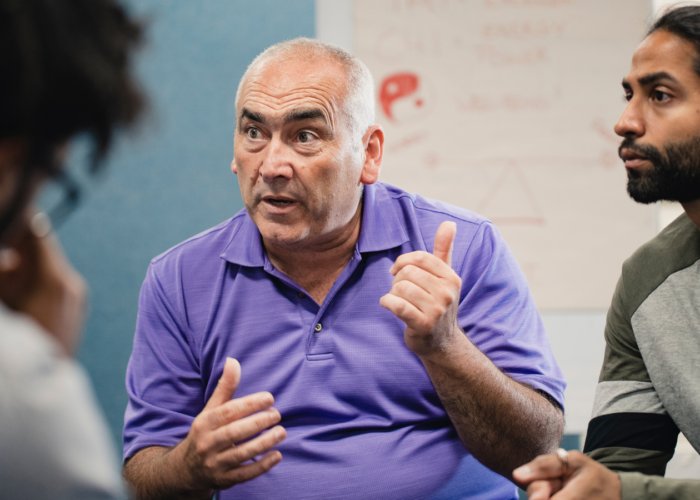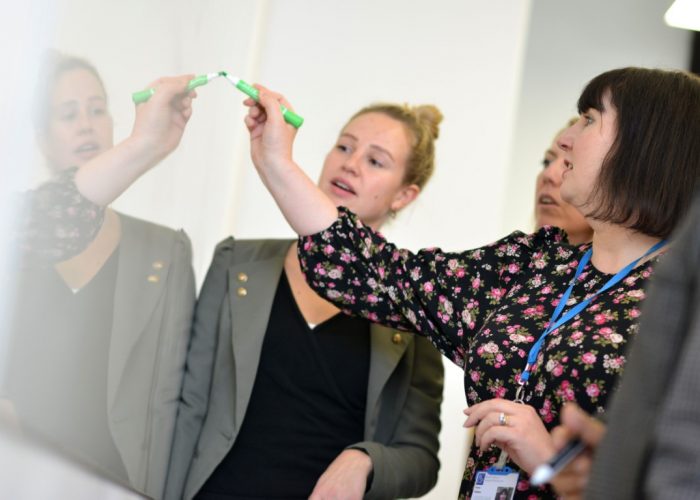
Following her presentation to the All Party Parliamentary Group on rare, genetic and undiagnosed conditions in December, Julia Wilkins, Head of Data and Analytics, was asked to speak at the prestigious Max Planck Institute for Molecular Genetics in Germany in May.
Rare diseases are being increasingly recognised as a health priority, due to their impact not only on families but also on healthcare systems. Since 2018, ICHP has been working alongside healthtech company Mendelian to evaluate the cost and impact of undiagnosed rare diseases on the NHS.
I was delighted to share the findings of our work so far with delegates at a special workshop on genomic medicine in Europe held at the Max Planck Institute, because while funding issues may differ from health system to health system, the impact of these diseases is a global issue.
The event brought together experts from England, France, Sweden and the Netherlands to discuss the medical, technical, organisational and economic aspects of whole genome sequencing (WGS) based diagnostics, followed by a panel discussion on how WGS can be introduced successfully into the German healthcare system to facilitate the diagnosis, prevention and personalised treatment of genetically determined disease.
The challenges of researching rare diseases
Most rare diseases are genetically inherited and they can be particularly difficult to diagnose due to their individual rareness – especially since around half don’t fully manifest symptomatically until adulthood.
Differential diagnosis for a rare disease often relies on access to the right expert clinician and a reliable genetic test, meaning the journey to medical diagnosis can often involve numerous referrals to different specialists alongside a plethora of often invasive tests. The diagnostic delay can reach up to 30 years for some conditions.
In addition, any kind of research into the impact of rare diseases is hampered by the fact that routine healthcare data collection does not accurately capture and identify the thousands of different rare disease classifications that can pass through a healthcare system. For example, the International Classification of Diseases (ICD-10) is believed to only account for approximately five per cent of known rare diseases.
The initial findings
So far, we’ve carried out a preliminary investigation into the potential cost and resource impact of rare diseases on the NHS compared to the rest of the patient population, with a focus on the time period up to diagnosis.
The initial findings using real-world hospital datasets (HES data) show that the lengthy process of diagnosing rare diseases is having a large impact – over the last 10 years, rare disease patients during their diagnosis period have cost NHS England in excess of £3.4 billion.
In this period, patients with rare diseases had a higher number of hospital visits and accompanying costs than the general patient population, and their care cost an average of more than twice that of other patients who had a hospital visit – an average individual difference of over £7,000.
However, we believe that the costs our research has identified are only the tip of the iceberg, because routine healthcare data doesn’t yet fully capture the true extent of the thousands of different rare disease classifications. This means that the impact of diagnosing rare diseases on the NHS, both in terms of cost and resource utilisation, is most likely considerably larger than our estimate.
The research to date has called on hospital episode statistics. For the next stage of the project, we’ll be looking at the extended patient journey, using North West London’s Whole Systems Integrated Care (WSIC) dataset, which contains data linked across primary, secondary, community, mental health and social care covering a population of over 2.4 million people. High cost drugs are included in this integrated dataset, making it possible to evaluate these drugs.
Why is this research important?
People with rare diseases tend to have multiple health problems and complex care needs, requiring access to a wide range of health services, and an early diagnosis is important for people to be given the best care.
Because rare diseases, by their very nature, affect only a small proportion of the population, it can be very difficult to find the real world data needed for research and analysis. For rare diseases, the more data we have the better, because many drugs aren’t being made available as the real world evidence isn’t there, but we can help with that.
We need more evidence around the burden on the NHS before diagnosis to form part of the evidence base used when deciding on funding for new drugs – allowing us to measure the real world cost of not diagnosing a condition quickly or using the available medicines against the costs and benefits of prescribing the new medicines as they come through.
I’m excited by what the next stage of this research can offer to us and how we can continue to influence this important agenda.
Read the full preliminary assessment here.
For more information email the ICHP team at b.i@imperialcollegehealthpartners.com.



